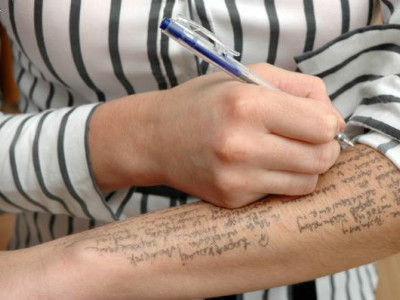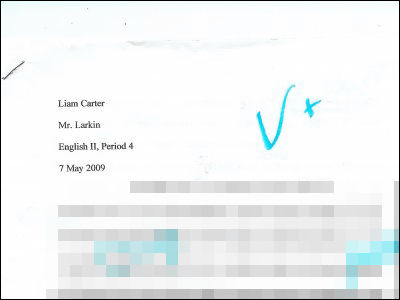Most high school students do junk in tests and reports, but do not feel it is jumping

From outright cheating such as seeing the person's answer in the test, getting friends in the class who took the test earlier, teaching the problem, handling the homework, copying the answer from a friend, reading the book without reading the book It seems that a survey result appears that most of the high school students have done some kind of misconduct on academics until "Zul" such as seeing things and writing reading impression sentences.
Moreover, it is mostly done while knowing that cheating of tests is fraudulent, but with respect to reports and homework, there are also many students who do not recognize that they are cheating.
Details are as below.Most high schoolers cheat - but do not always see see it as cheating, study finds
University of Nebraska LincolnEducational psychologist Kenneth Kiewra and colleagues and colleagues included 100 people in high school 11th grade in the Midwest of the United States (second grade high school student in Japan) to recognize fraud in tests, homework and reports and what they did We conducted anonymous questionnaire survey to have experiences as to whether there was a problem.
"Most students know what is deemed to be fraudulent, it is a psychologist who understands that it is a cheating, and many students write tests, homework, and reports We do cheating on occasions, etc. However, there are cases where we do it without recognizing "being a cheating act" in some cases, "Kiewra says.
The survey results revealed that the acts clearly recognized by the students as being illegal acts and the acts that go into the gray zone where many students feel "not cheating" It was. However, regardless of whether they understand irregularities or not, it seems that we do it when we do it.
For example, it seems that 87% of the students answered that they had done it once, even though 89% of students recognized "cheating other people's answers during the test" as fraud is. In addition, 94% of students recognize that answers to someone during the test are fraudulent, but 74% have experience.
As an act that "perceived as being illegal" is not sufficiently prevalent, students who understand "to tell a friend who has not received the test yet the problem of the test he / she received as fraud" Only 47%, nearly 70% of the students were experienced.
Professor Kiewra says, "The findings suggest that students' awareness about misconduct can be tied to the need to make efforts, for example teaching test questions to friends is not as bad as teaching answers It is easy to think that it is thought that a friend taught the problem must take the effort to solve it by yourself. "
Also, there seems to be a variation among students in the recognition that fraud in homework and report is fraud compared to misconduct in tests in general. Specifically, "Solving tests of the type received at home" in collaboration with friends "accounts for 62% of students being cheating (51% of experienced people)," making homework done "as fraud and 39% (experienced 53%) think that it is illegal to think "to write a report by seeing what was made into a movie without reading a book" (23% experienced), thinking It is.
The survey results also indicate that the criteria for judging "being fraudulent" is sweet for acts performed outside the classroom. According to Professor Kiewra, it seems that this is because the risk of being perceived is lower compared with the case where fraudulent acts are done in the classroom.
"Teachers need to tell students concretely what is cheating and to understand, but it will not reduce fraud, it is necessary to strictly watch and crackdown more.The students are fraudulent Even if I know it is an act, it is what I do if it does not come out, "Professor Kiewra says.
Related Posts:
in Note, Posted by darkhorse_log







